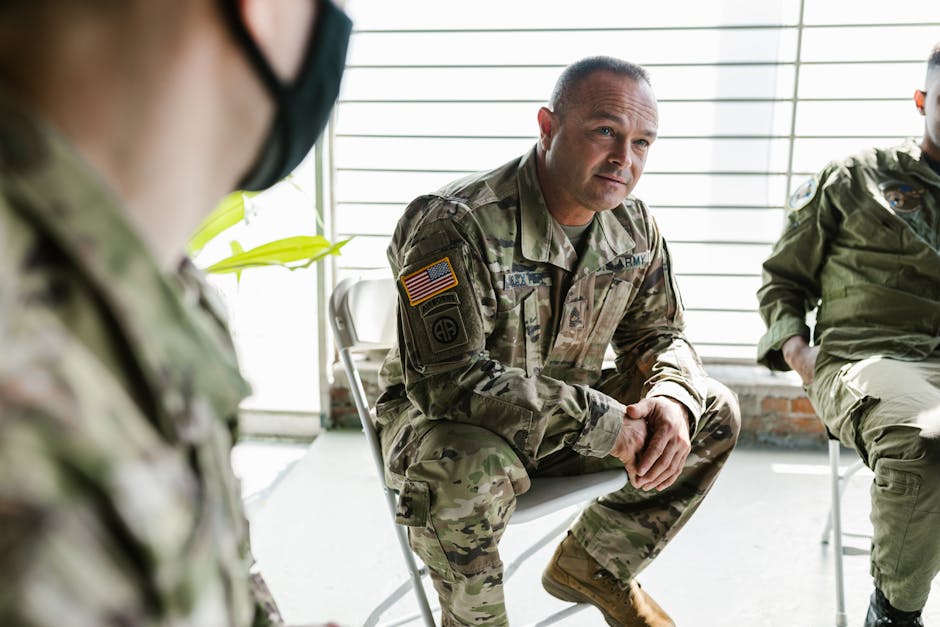The Role of Peer Mentoring in Mental Health Recovery
In recent years, the conversation around mental health has gained significant traction, and with good reason. Support systems are critical, and peer mentoring often stands out as a beacon of hope for many on their journey to recovery. Let’s dive into how peer mentoring plays a pivotal role in mental health recovery and why it might just be the support system you or your loved ones need.
Table of Contents
1. Introduction
2. Understanding Peer Mentoring ?
3. Benefits of Peer Mentoring ?
4. How to Find a Peer Mentor ?
5. Conclusion
6. FAQ
Introduction
Imagine having someone by your side who truly understands what you’re going through, not because they’ve read about it, but because they’ve lived it. That’s the essence of peer mentoring in mental health. It’s about shared experiences, mutual support, and the unique connections that can foster healing and growth.
Understanding Peer Mentoring ?
Peer mentoring involves individuals who have successfully navigated their own mental health challenges, supporting others who are currently facing similar issues. These mentors offer empathy, guidance, and firsthand insights that can be incredibly comforting. Unlike traditional therapy, peer mentoring is more about companionship and less about clinical treatment.
Benefits of Peer Mentoring ?
Why consider peer mentoring? Here are a few compelling reasons:
1. Shared Experiences
There’s a special kind of understanding that comes from shared experiences. A peer mentor has “been there” and can empathize in a way others might not.
2. Enhanced Motivation
Seeing someone who has successfully navigated their own path can be incredibly motivating. It offers hope and demonstrates that recovery is possible.
3. Non-judgmental Support
Peer mentors provide a safe space where you can express yourself without fear of judgment. This can be a powerful element in the healing process.
4. Building Confidence
Regular interactions with a peer mentor can help boost your confidence, as you learn to trust the process and your own ability to recover.
How to Find a Peer Mentor ?
Finding the right peer mentor can be a game-changer. Here are some steps to help you get started:
Research Organizations: Look for organizations that specialize in mental health support. Many have peer mentoring programs.
Join Support Groups: Online and offline support groups can be excellent places to connect with potential peer mentors.
Ask for Recommendations: Talk to healthcare providers or therapists who might know of reputable peer mentoring services.
Conclusion
Peer mentoring is an invaluable tool in mental health recovery, offering shared understanding and support that can’t be found elsewhere. Whether you’re seeking help for yourself or someone else, exploring peer mentoring could be a crucial step toward healing and empowerment.
FAQ
What is peer mentoring in mental health? ?
Peer mentoring in mental health involves individuals who have experienced mental health challenges themselves, mentoring others going through similar experiences. It’s about sharing experiences and providing support from a place of understanding.
How can peer mentoring help in recovery? ?
Peer mentoring can offer motivation, shared experiences, and non-judgmental support, all of which are pivotal in facilitating recovery from mental health issues.
Where can I find a peer mentor? ?
You can find peer mentors through mental health organizations, support groups, or by asking healthcare providers for recommendations.
As you continue on your journey, remember that you’re not alone, and there’s always someone out there who can relate to your story. ?
For more information please click here
James Donaldson is a Washington State University graduate (’79). After an outstanding basketball career with WSU, he went on to play professional basketball in the NBA with the Seattle Supersonics, San Diego/L.A. Clippers, Dallas Mavericks, New York Knicks, and Utah Jazz. He also played for several teams in the European Leagues in Spain, Italy, and Greece, and he toured with The Harlem Globetrotters to wrap up his career. James was an NBA All-Star in 1988 while playing center for the Dallas Mavericks. In 2006, James was inducted into the Pac-10 Sports Hall of Fame and also the Washington State University Athletic Hall of Fame. In 2010, James was elected as a board member for the NBA Retired Players Association.
James frequently conducts speaking engagements (motivational, inspirational, educational) for organizations, schools, and youth groups.
In 2010, James was the recipient of the NBA Legends of Basketball ABC Award, awarded for outstanding contributions in Athletics–Business–Community.
He believes in being a role model for success and professionalism to the scores of young people to whom he devotes so much of his time. He currently serves on several boards and committees and is a member of many organizations.
James believes in developing relationships that create a “Win-Win” environment for everyone involved, and in being the best he can be!
For more information about James Donaldson or to request he speak at your event, contact him at:
www.StandingAboveTheCrowd.com
[email protected]
1-800-745-3161 (voicemail & fax)
James Donaldson is the author of “Standing Above The Crowd” and “Celebrating Your Gift of Life” and founder of the Your Gift of Life Foundation which focuses on mental health awareness and suicide prevention, especially pertaining to our school aged children and men.
If you’re interested in having James come and speak to your group of young adults, business entrepreneurs, aspiring political and community leaders, and athletic teams, please contact him at [email protected] and or leave a personal message for him at 1-800-745-3161. Keep up with him and read about how he is reaching out and making a difference in the lives of so many around the world at www.yourgiftoflife.org



